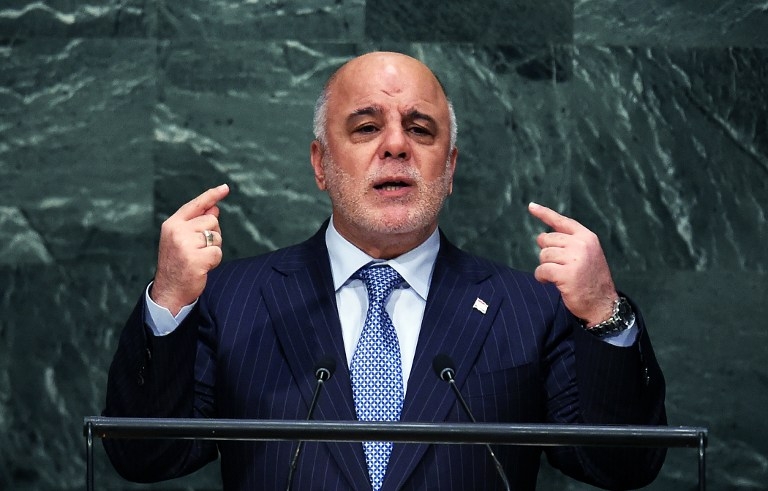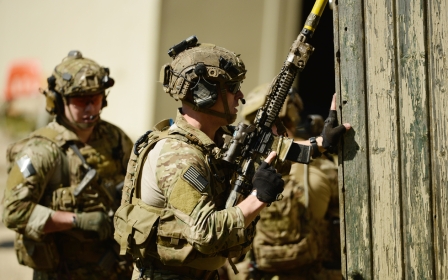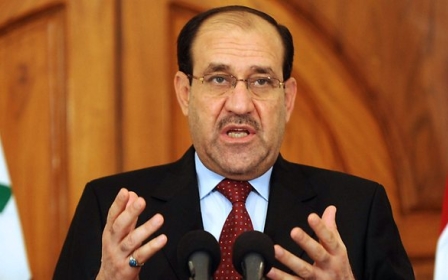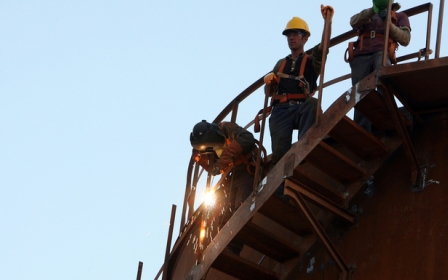Iraqi PM rejects US calls to deploy foreign ground troops

Iraqi Prime Minister Haidar al-Abadi said late on Tuesday that Iraq has sufficient forces to fight IS, after American senators called for more US troops to be deployed to the country.
"The Iraqi government welcomes an increase in support in weapons and training and (air) support from international partners in our war against Daesh [IS]," Abadi said in a statement.
But "we confirm that Iraq has enough men and resolve to defeat Daesh and other similar criminal groups," he said, using another acronym for the Islamic State group.
Abadi's remarks came a day after American senators John McCain and Lindsey Graham advocated an increase in US forces in Iraq to around 10,000 from the current cap of 3,550 and also called on other regional states to provide additional forces.
"The prime minister... said he wanted more American presence here," McCain, the chair of the Senate Committee on Armed Services, told journalists in Baghdad.
And Graham, a member of the same committee, said: "I talked with the prime minister - would you like more American help? The answer was yes."
He added: "If you went up to 10,000, you're not gonna get any pushback from the Iraqis."
"I mean the difference between 3,500 and 10,000 is meaningless politically inside the country."
But despite Abadi's rejection of ground troops, the US continued to push for the deployment of a special force that is expected to number only about 200.
US Defense Secretary Ash Carter said the deployment of the new "specialised expeditionary targeting force" would be carried out in coordination with Iraq's government and would aid Iraqi government security forces and Kurdish peshmerga forces.
"These special operators will over time be able to conduct raids, free hostages, gather intelligence and capture ISIL leaders," CNBC News reported Carter told the US House of Representatives while using a different acronym for IS.
"This force will also be in a position to conduct unilateral operations into Syria."
The presence of American soldiers in Iraq, where the US fought a nearly nine-year war, remains a very sensitive issue.
IS overran large areas north and west of Baghdad last year, aided by the collapse of significant units of the Iraqi army.
Iraqi forces backed by US-led air strikes have since regained significant ground from IS north of Baghdad, but large parts of the country's west remain under IS control.
The militants also hold territory in Syria and have carried out major attacks in the Middle East and also Europe.
New MEE newsletter: Jerusalem Dispatch
Sign up to get the latest insights and analysis on Israel-Palestine, alongside Turkey Unpacked and other MEE newsletters
Middle East Eye delivers independent and unrivalled coverage and analysis of the Middle East, North Africa and beyond. To learn more about republishing this content and the associated fees, please fill out this form. More about MEE can be found here.




